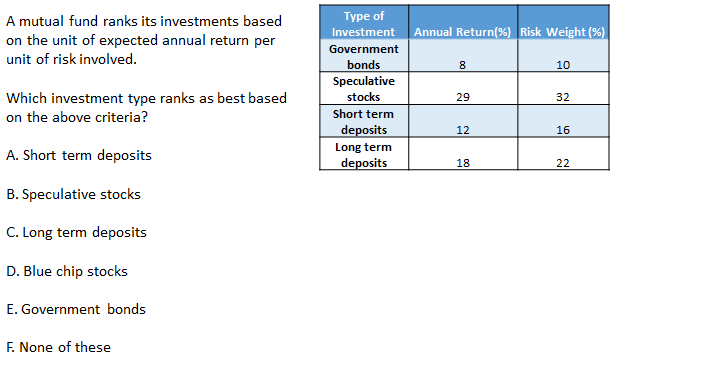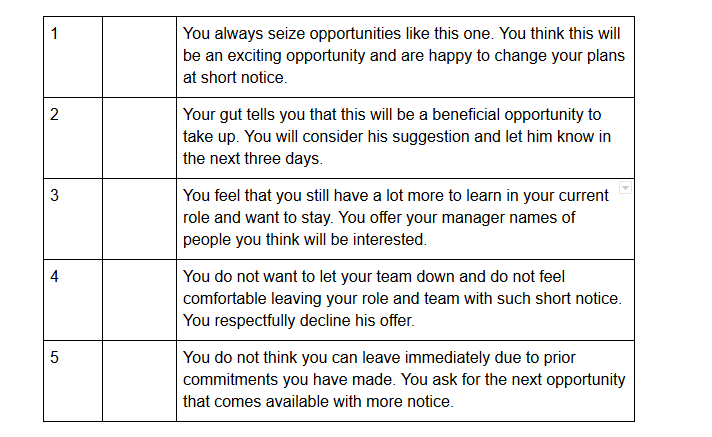CAPP Tests (2024 Guide)
All products and services featured are independently selected by WikiJob. When you register or purchase through links on this page, we may earn a commission.
- What Is CAPP?
- What Types of Aptitude Tests Does CAPP Produce?
empty
empty
empty
empty
- Which Companies Use CAPP Tests?
- How to Prepare for CAPP Tests in 2024
- Example Practice CAPP Questions (2024)
empty
empty
empty
- Tips on How to Succeed During the CAPP Tests
empty
empty
empty
empty
empty
empty
empty
What Is CAPP?
CAPP (or cappfinity) is a company that specialises in psychometric testing solutions for businesses in a variety of industries and sectors, such as situational strength tests or the cappfinity numerical reasoning test. Some of the most notable businesses that use its tests are in the finance and legal industries, including Deloitte and EY.
The company was founded in 2005 and, since its inception, has developed some of the most advanced strength-based assessments available on the market.
One of the main attractions of cappfinity assessment is that they focus on the innate strengths and candidate's abilities.
Because of this, CAPP tests are believed to match candidates with jobs that they are more intrinsically attracted to, and so (theoretically) help to create happier and more productive workplaces.
These situational strength tests may be the cappfinity verbal reasoning test or the cappfinity numerical reasoning test.
What Types of Aptitude Tests Does CAPP Produce?
CAPP has a varied catalogue of strengths-based aptitude tests. Its most popular and commonly used tests are the verbal, numerical, critical reasoning and situational judgement tests.
Let’s look at each in turn.
CAPP Verbal Reasoning Tests
These aim to assess how effectively candidates can reason with verbal information. The tests are typically comprised of an assortment of question styles that test different verbal skills.
The tests have no strict time limit and candidates can work through them at their own pace.
Although the tests may seem ‘pressure-free’ to some, really they just present a different type of challenge, as the time you take to complete the test is taken into account.
CAPP Numerical Reasoning Tests
These are also conducted without any time limit. The tests assess candidates’ numerical mindset, their ability to identify relevant data, comprehend numerical information, interpret visual data and decipher problems.
CAPP tests use a scientific scoring system that takes into account the candidate’s speed and accuracy at answering questions, along with the difficulty of each respective question.
The candidate will face up to 20 questions in a typical numerical reasoning test.
Because the test is adaptive, the number of questions may vary and will depend on how well the test-taker handles initial questions/problems.
Here is a sample question:
Practice CAPP Test with JobTestPrep
CAPP Critical Reasoning Tests
CAPP’s critical reasoning tests are a fundamental component of the recruitment processes for many of the UK’s top graduate and managerial positions.
The tests focus on events that are likely to take place in a modern work environment. They asses how candidates judge arguments, evaluate evidence, draw logical conclusions, identify assumptions and come to conclusions.
In addition, candidates are asked to rate how confident they are in each of their answers. This gives employers more insight into the candidate’s critical abilities.
CAPP Situational Judgement Tests
Situational judgement tests (also known as situation reasoning assessments) are used to scrutinise a candidate’s approach to solving work-related problems.
The CAPP-style SJT format consists of a series of situations, with the candidate instructed to rank the courses of action, with ‘1’ being those they are most likely to take and ‘5’ those they are least likely to take.
In this test, you will be able to rank the five presented options by dragging and dropping them in any order you choose.
The aim of the test is to evaluate core competencies that are appropriate for the position and the organisational culture. Eight of the major categories of core competencies that are most commonly assessed include:
- Communication
- Resilience
- Learning & Development
- Leadership
- Teamwork
- Priority & Organization
- Analysis & Problem Solving
- Delivering Quality & Results
Here's a sample question:
You have been working in your new role for only six weeks and you are enjoying the diversity of tasks you are working on. Your manager is impressed with your work so far and has already given you some responsibilities to support your team.
Your manager calls you in for a meeting and offers you an opportunity to take up an international placement that will you will need to start immediately.
The placement is in Cape Town, South Africa, and you will be required to provide support to a small team. Your manager feels that you will gain a lot of experience from this international placement. He has given you three days to decide if you will accept the placement.
What do you say to him?
Please rank in order the options below, with 1 being what you are most likely to say and 5 being what you are least likely to say:
If you need to prepare for a number of different employment tests and want to outsmart the competition, choose a Premium Membership from JobTestPrep.
You will get access to three PrepPacks of your choice, from a database that covers all the major test providers and employers and tailored profession packs.
Which Companies Use CAPP Tests?
Some of the UK’s most notable employers use CAPP tests in their recruitment process. One of these is Deloitte, which has CAPP tests as part of its ‘Online Job Simulation’ assessment.
Other companies that use CAPP tests include:
- Aviva
- Barclays
- Boehringer Ingelheim
- British Telecoms (BT)
- Civil Service
- Domestic and General
- EY
- Lloyds Banking Group
- Microsoft
- Nestle
- Severn Trent Water
- Standard Chartered Bank
- Stonegate Pub Company
- Thomson Reuters
- Transport for London
How to Prepare for CAPP Tests in 2024
Step 1. Practice
The key to passing the CAPP tests is practice, practice and more practice. Practising CAPP tests will give you more familiarity with the testing style, help you improve your technique and make you more confident on the test day.
The best way to prepare for any recruitment test is by completing practice test packs. Generally, using these test questions will help you to focus on whatever component you consider to be your weakness and perfect it.
If you’re not from a mathematical background and feel uncomfortable with numerical data, spend some time taking practice CAPP numerical reasoning tests.
Step 2. Read With a Critical Eye
Perhaps you have a more scientific background and find verbal reasoning difficult to get to grips with. If so, get into the habit of reading academic texts with a critical eye.
In the lead-up to the test, start reading articles in publications like The Economist and Forbes on a regular basis.
As you read these articles, think about the way that the author presents and explores key points. Continual practice will equip you with the skills you need to pass the verbal reasoning tests.
Step 3. Research the Company
Another important thing to bear in mind is that the CAPP assessments may differ slightly from company to company, based on each organisation’s set of core competencies. So, be sure to research the individual company and the key strengths it looks for.
Example Practice CAPP Questions (2024)
The following are potential questions which could come up in a CAPP test:
CAPP Numerical Reasoning
You’ll usually be presented with a graph or chart of numerical data. For example, a chart may present flight times and fares from both Glasgow and Edinburgh airports to a variety of destinations within the UK.
The candidate may then be asked the following series of questions:
1. Rank the time required for each journey from the longest to the shortest, bearing in mind that a 45-minute layover is needed in Glasgow, and an hour-long layover is needed in Edinburgh.
2. A group of four adults will travel from Edinburgh to the Isle of Man. They have received 80% off their return flights and have invited one more friend along who pays the full price. How much in total have the five adults saved on the original flight fare?
CAPP Verbal Reasoning
The verbal reasoning test includes five types of question:
1. Drag and Drop
The candidate is shown a passage of text and two potential replies that could follow. They should choose which response is the most appropriate, based entirely on the style of communication.
2. Drop-Down
Read a passage of text and choose the most appropriate word to fill in the blank spaces.
3. Corrections
Read a passage of text and correct any mistakes that you find.
4. Rank
Read a series of statements and rank them from 1 to 5, typically with ‘5’ being the most positive and ‘1’ being the least positive.
5. Multiple Choice
Read a passage of text and answer the comprehension questions using ‘true’, ‘false’ or ‘cannot say’.
CAPP Critical Reasoning Tests
The critical reasoning test contains five different types of question.
For each question, the candidate should indicate how confident they are in their answer.
1. Deducing Conclusions
The candidate is shown a statement and four possible conclusions. They should decide whether the ‘conclusion follows’ or the ‘conclusion does not follow’, based upon how relevant each conclusion is to the original statement.
2. Evaluating Evidence
Again, candidates will be shown a statement and four possible conclusions. They should consider whether each option could reasonably be true or false, based on the information they have previously read. Each option should be marked as ‘conclusion follows’ or ‘conclusion does not follow’.
3. Judging Arguments
The candidate is shown a statement and four potential arguments that could follow it. Based on what they’ve read, they should decide whether each potential argument is a ‘strong argument’ or a ‘weak argument’.
4. Drawing Logical Inferences
The candidate is shown a short paragraph of text and four possible conclusions that could follow from it. They should consider each conclusion and decide whether it could be true or false, based on the information they’ve read.
5. Identifying Assumptions
The identifying assumptions section of the test consists of four questions. Each question begins with a statement followed by four potential assumptions. The candidate should decide whether each assumption is expressed in the passage of text.
Tips on How to Succeed During the CAPP Tests
Practice
It’s no secret that practice is the key to passing aptitude tests, and CAPP’s tests are no different.
We recommend completing practice CAPP tests online to help you familiarise yourself with what will be expected of you.
As well as practice tests, reading more articles in high-end publications and broadsheet newspapers can help improve your verbal reasoning skills; especially if you get into the habit of reading with a critical eye.
Read The Question Thoroughly
On your CAPP test day, make sure you read each question very carefully. Skimming through texts in a reasoning test is a sure-fire way to fail.
CAPP tests purposefully include confusing language designed to trip candidates up. Often this confusing language comes in the form of double negatives, so be extra wary of these.
In some cases, a single word could change the whole meaning of a sentence.
Don’t Rush
Rushing can lead to careless mistakes, and CAPP tests have no time limit, so there’s no need to go faster than you are comfortable with.
Do remember, though, that the time it takes you to complete each question is taken into account when grading your test.
The perfect test score is a mix of both accuracy and timeliness.
Don’t Panic
Nerves are inevitable on test day but panicking will do you no favours.
If you come across a challenging question that you don’t know how to answer, simply skip it.
You can come back to it at the end of the test and approach it with fresh eyes.
Use Notepaper
Since the CAPP test is done using a computer, it’s advisable to have notepaper close to hand.
You can use it to write down any relevant information and, for example, work out difficult fractions.
Be Comfortable with Calculating Mathematical Functions
The numerical reasoning test is one of the most challenging parts of the CAPP aptitude tests.
It’s important to familiarise yourself with basic mathematical functions. You can be sure that working out percentages, ratios and fractions will come up in the numerical reasoning test.
Being able to carry out these operations quickly and comfortably will significantly increase your chances of passing.
Sit The Test In A Quiet Place With No Distractions
If you’re taking the CAPP test at home, make sure you are somewhere with no distractions and a fast, stable internet connection. For most people, this would be their bedroom or home study.
Let the people in your house know that you’ll be sitting your test and to not disturb you during that time. Another tip: keep the door closed to keep out pets.








